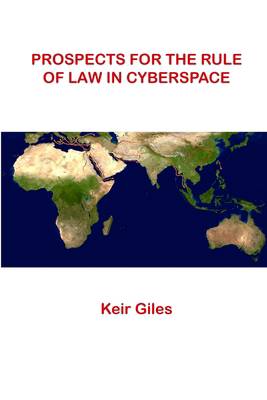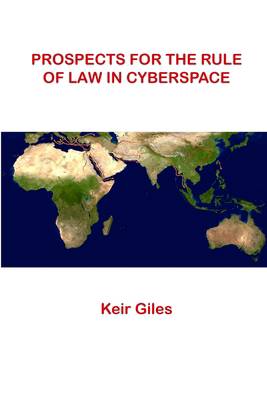
- Afhalen na 1 uur in een winkel met voorraad
- Gratis thuislevering in België vanaf € 30
- Ruim aanbod met 7 miljoen producten
- Afhalen na 1 uur in een winkel met voorraad
- Gratis thuislevering in België vanaf € 30
- Ruim aanbod met 7 miljoen producten
Zoeken
Omschrijving
At the time of this writing, the events during the 2016 presidential election campaign have focused intense attention on the dangers of hostile cyber and information operations by foreign powers. The legality under international law of this kind of interference in another state's information space has been the subject of long discussion, both bilaterally between the United States and other major cyber powers, and internationally at the United Nations (UN) and elsewhere. In this Letort Paper, completed in late 2015, British researcher Keir Giles provides a guide to the various and conflicting trends in this debate. As a long-term scholar of the Russian approach to cyber policy and legality in cyberspace, Giles places the discussion, and U.S. concerns, in an international context. In particular, he explains the deep ideological divides on the correct course of action to take between the United States and its allies on the one hand, and a large group of nations led by Russia and China on the other.
Specificaties
Betrokkenen
- Auteur(s):
- Uitgeverij:
Inhoud
- Aantal bladzijden:
- 64
- Taal:
- Engels
Eigenschappen
- Productcode (EAN):
- 9781387581191
- Verschijningsdatum:
- 8/02/2018
- Uitvoering:
- Paperback
- Formaat:
- Trade paperback (VS)
- Afmetingen:
- 152 mm x 229 mm
- Gewicht:
- 104 g

Alleen bij Standaard Boekhandel
+ 43 punten op je klantenkaart van Standaard Boekhandel
Beoordelingen
We publiceren alleen reviews die voldoen aan de voorwaarden voor reviews. Bekijk onze voorwaarden voor reviews.











